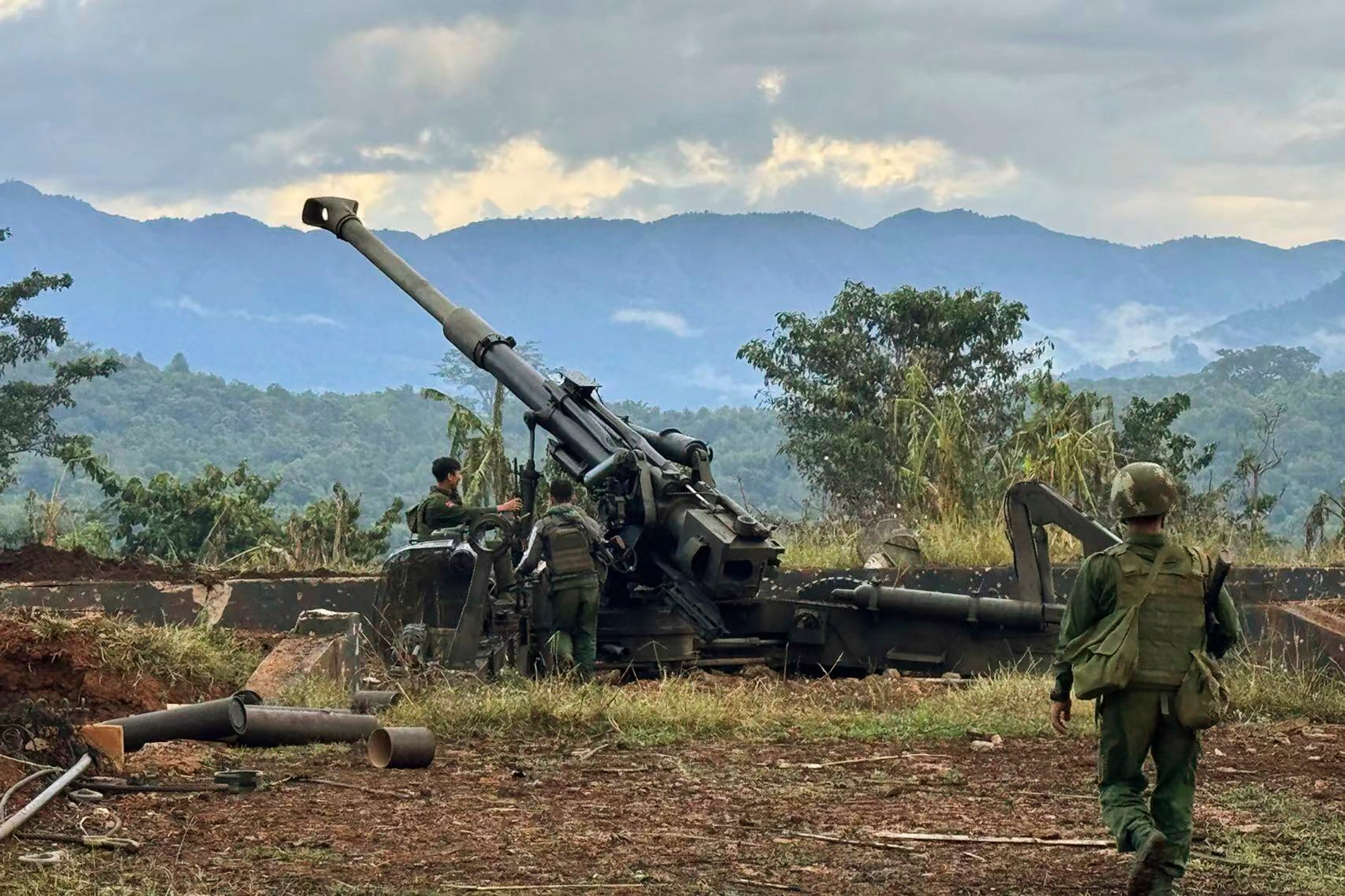Multiple armed groups launched a coordinated offensive in late October across Myanmar’s northern provincial administrations of Shan State, Kachin State and the upper Sagaing Region.
China’s southwestern province of Yunnan shares a 2,000km (1,250-mile) border with Myanmar’s Shan and Kachin states.
Analysts said that while Beijing was willing to support regional stability, it would not intervene in Myanmar’s situation beyond the need to tackle telecoms scams that have targeted Chinese nationals.
Forced out of Myanmar ‘like dogs’, Rohingya refugees face persecution in India
Forced out of Myanmar ‘like dogs’, Rohingya refugees face persecution in India
Andy Mok, a senior research fellow at the Beijing-based Centre for China and Globalisation, said the Chinese approach to Myanmar’s political situation “leans towards advocating stability while respecting sovereignty”.
“While China maintains its principle of non-interference, it indicates a willingness to offer strategic support, balancing regional security interests.”
He said the junta “might want to secure Beijing’s friendship in hopes of isolating the ethnic armed organisations from diplomatic backing”.
On Wednesday, Wang said the two countries should work together to eradicate the “cancer” of online gambling and electronic fraud, adding that they had already “achieved remarkable results” on telecoms scams and “effectively deterred criminals”.
According to the Chinese statement, Than Swe said Myanmar attached great importance to developing relations with China and was willing to deepen bilateral cooperation in various fields.
Fung said Beijing’s “top priority” was to prevent the conflicts in Myanmar’s northern Shan State from spilling over the border.
As Myanmar fighting threatens borders, China and India ‘compete for influence’
As Myanmar fighting threatens borders, China and India ‘compete for influence’
“Beijing has tried to mediate the ethnic conflicts, and the Chinese special envoy plays an important role in that respect,” he said, referring to Deng Xijun, who met two junta ministers in September.
Koh King Kee, president of Malaysian think tank the Centre for New Inclusive Asia, said the junta was becoming more reliant on China given its isolation from the West and the region.
He said the junta needed China’s help “to act as a mediator to broker a truce with the ethnic armed alliance in order to sustain its regime, as China has considerable influence over the alliance”.
Koh said the military government was “in danger of collapse” amid attacks from the armed groups.

“China is unlikely to intervene directly … but will exercise its influence to help maintain peace and security in Myanmar and ensure that cyber scam activities don’t re-emerge under the patronage of the military regime,” he said, adding that many cybercrime operations headquartered in the border regions were destroyed by the ethnic armed alliances.
According to Swaran Singh, an international relations professor at Jawaharlal Nehru University in New Delhi, Beijing has sought to distance itself from the junta over the years and has been “very cautious” lately given its concerns over telecoms fraud and online gambling.
“So what we see is cautious pragmatism determining China’s engagement with Myanmar,” Singh said.
In Beijing on Wednesday, Wang also met his Thai counterpart, Parnpree Bahiddha-Nukara, and again stressed the need to combat cybercrime.
“The two sides should maintain a stable and unimpeded system of production and supply chains, jointly crack down on transnational crimes such as online gambling, telecoms fraud and human trafficking, and push for new development of China-Thailand relations,” Wang said, according to official news agency Xinhua.


